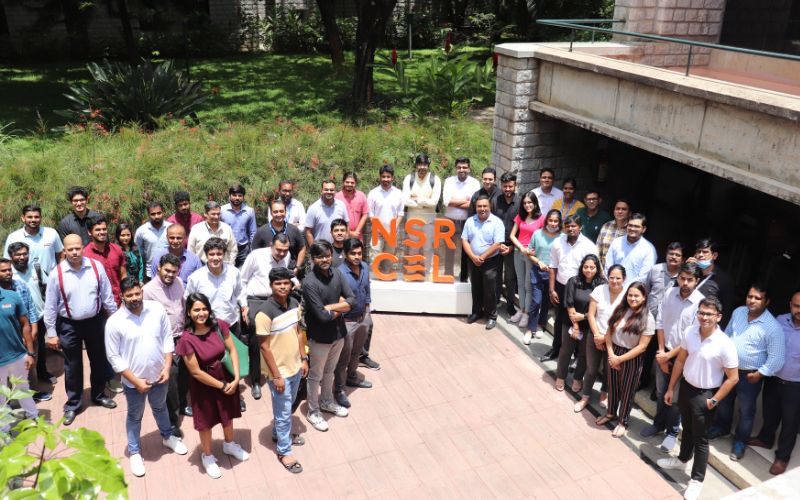“It is heartening to see our community initiatives targeted at sustainable mobility already delivering the desired impact and making our cities have cleaner air. This is a step forward in our commitment to reshaping India’s transportation landscape and supporting the country’s Sustainable Development Goals.” Olivier Loison, Managing Director – Alstom India
Alstom, a global leader in smart and sustainable mobility shared highlights from its community initiatives in India on World Sustainable Transport Day. Through continuous innovation in sustainable transport solutions, Alstom contributes significantly to both environmental preservation and economic development. Under the aegis of Alstom’s CSR programs, the Sustainable Mobility Incubation Program with NSRCEL, at the Indian Institute of Management Bangalore (IIMB). As part of these initiatives, two start-up cohorts incubated thus far by NSRCEL (have collectively reduced carbon emissions by more than 125 million kilograms. This is equivalent to taking more than 27,000 diesel-powered cars off the road for a year in India. The Low Emission Access to Public Transport (LEAP) project, supported by Bangalore Metro Rail Corporation Ltd (BMRCL) and implemented by WRI India directly tackles air pollution and improves access to public transport. The LEAP project has also delivered positive impact through last mile connectivity with the deployment of e-autorickshaws at prominent metro stations, it has already completed 30,000 kms of travel in a span of six months. MetroRide, an AI-powered EV ride hailing solution is the chosen operator for this program, which has also trained women to operate electric autorickshaws that were deployed around key metro stations in Bengaluru improving women’s representation in the transport workforce.
Speaking about Alstom’s community initiatives impact, Olivier Loison, Managing Director – Alstom India said, “It is heartening to see our community initiatives targeted at sustainable mobility already delivering the desired impact and making our cities have cleaner air. This is a step forward in our commitment to reshaping India’s transportation landscape and supporting the country’s Sustainable Development Goals.”
Sustainable Mobility Incubation Program at NSRCEL
Alstom’s initiatives go beyond creating transportation solutions and aim to redefine India’s urban mobility landscape. Through the Sustainable Mobility Incubation Program in partnership with NSRCEL the startup hub and incubation centre at IIMB, Alstom nurtures early-stage startups focused on green transport innovations, aiming to deliver long-term sustainable mobility solutions and impact. This program has already achieved a significant environmental milestone by preventing over 125 million kilograms of carbon emissions, aligning with India’s net-zero goals, while generating economic impact through the creation of 164 jobs in the sustainability sector.
The program’s effectiveness is reflected in measurable outcomes:
• 78.4% of ventures have enhanced their innovation in sustainable transport solutions.
• 86% have optimized business models to drive growth while minimizing environmental impact.
• 80% have increased their agility in addressing market shifts within the alternative fuel and sustainable transport sectors.
• Ventures secured $32 million in funding and an additional $9 million in grants.
By providing mentorship and funding, Alstom is not only fostering last-mile connectivity innovation but also building a robust culture of green entrepreneurship across India.
Low Emission Access to Public Transport (LEAP)
The LEAP project, supported by BMRCL and WRI India, is another testament to Alstom’s impact-driven approach. The project has demonstrably reduced emissions, provided commuters with cleaner travel options, and created new employment opportunities since the launch of the pilot phase in February this year. LEAP’s success in boosting metro ridership through enhanced reliability and efficiency is paving the way for expansion to other stations, further connecting high-traffic areas and solidifying Bengaluru’s sustainable transport network. In six months of operation, the project in partnership with MetroRide has:
• Trained 30-woman drivers and onboarded 21, providing them with a sustainable guaranteed minimum income.
• Covered 30,000 kms, an equivalent of 500 trips around Bangalore’s outer ring road through eco-friendly last-mile connectivity options.
• Advanced inclusiveness in public transport with 40% commuters served under LEAP being female.
These initiatives demonstrate Alstom’s dedication to enhance the liveability of urban areas and positively transforming surrounding communities, aligning with India’s Sustainable Development Goals.

